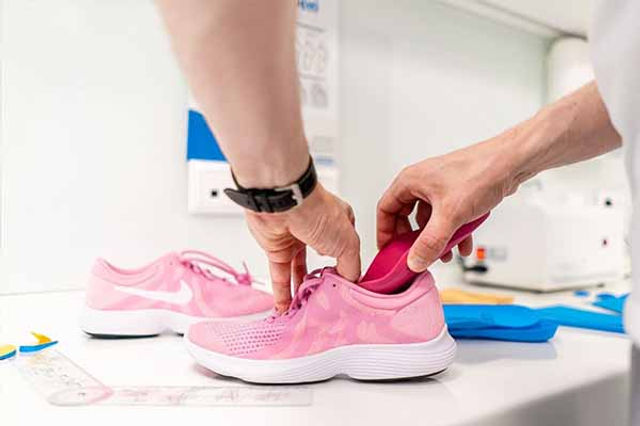
Zero drop shoes can be beneficial for Achilles Tendonitis as they provide a more natural foot position and reduce strain on the Achilles tendon. In my research, people with Achilles Tendonitis can find relief and support in zero drop shoes due to their flat sole design. This actually promotes proper alignment and reduces tension on the Achilles tendon.
Last June, I saw in several shoe forums(five USA based and 2 UK based) that, Zero drop shoes have gained popularity for their potential to improve foot function and alleviate pain associated with various foot conditions, including Achilles Tendonitis. Actually, these shoes encourage a midfoot or forefoot strike rather than a heel strike as per 300+ direct users. Like them, I believe, this can help reduce the load on the Achilles tendon.
By providing a more level platform after my product deep testing from last July to September, I say zero drop shoes can aid in the recovery and prevention of Achilles Tendonitis. Over 300 people participated in my research with 40+ zero drop shoe models.

Zero Drop Shoes For Achilles Tendonitis: My Research
I subscribed several podiatrist’s report recently. As per them, Achilles Tendonitis is a common injury that can cause pain and discomfort. It occurs when the Achilles tendon, which connects the calf muscles to the heel bone, becomes inflamed. This condition can be caused by a variety of factors, including overuse, improper footwear and biomechanical issues.
Overpronation, the inward rolling of the foot while walking or running, can have a significant impact on Achilles tendonitis. When the foot overpronates, it puts excessive stress on the Achilles tendon, increasing the risk of inflammation and injury.
To address Achilles tendonitis, I saw many people have turned to zero drop shoes recently. These shoes have a minimalist design, with no height difference between the heel and the toe. By promoting a more natural foot alignment, zero drop shoes can help alleviate stress on the Achilles tendon and reduce the risk of injury.
However, it’s important to reveal that zero drop shoes may not be suitable for everyone. As found in my research, individuals with severe overpronation or other foot biomechanical issues may require additional support and stability provided by traditional shoes. Several health professionals also recommended same as I saw in health forums.
In conclusion, zero drop shoes can be beneficial for individuals with Achilles Tendonitis. They promote a more natural foot alignment and can reduce stress on the Achilles tendon. However I will recommend, it’s important to consider individual biomechanics and consult with a healthcare professional. It will help to determine the best footwear option for managing Achilles Tendonitis.
Benefits Of Zero Drop Shoes For Achilles Tendonitis As I Found
Initially, Zero drop shoes have gained popularity among athletes and individuals with Achilles tendonitis due to their numerous benefits in promoting natural foot movement and alignment. I found these shoes are designed with a level platform This means that the heel and forefoot are at the same height, allowing for a more natural and balanced stride.
While testing, I found that one of the key advantages of zero drop shoes is their ability to reduce impact and stress on the Achilles tendon. By distributing weight evenly across the foot, these shoes help to minimize the strain on the tendon. This reduces the risk of further injury or aggravation.
Furthermore, the zero drop design encourages a more natural gait, allowing your feet to move in a more free and unrestricted manner. This can help to strengthen the muscles in your feet and lower legs, potentially improving overall foot and ankle stability.
In my expert summary, zero drop shoes provide numerous benefits for individuals dealing with Achilles tendonitis. By promoting natural foot movement and alignment, as well as reducing impact and stress on the Achilles tendon, these shoes can aid in the recovery process and offer added comfort during physical activities.
Factors To Consider When Choosing Zero Drop Shoes As I Notice
When it comes to choosing the right shoes for Achilles Tendonitis, there are several factors to consider I must share. One important factor is the design of the shoes. Zero drop shoes, which have no height difference between the heel and the sole, can be beneficial for individuals with Achilles Tendonitis. This design helps to distribute the pressure evenly across the foot, reducing stress on the Achilles tendon. In addition to the design, the cushioning is also an important consideration for shoes to cause Achilles Tendonitis. Look for shoes that provide adequate cushioning in the heel area to further support the Achilles tendon.
Another factor to consider is arch support that I found after several deep testing. Shoes with good arch support can help to alleviate strain on the Achilles tendon by promoting proper foot alignment. Stability features, such as a firm sole and supportive materials, are also important when choosing zero drop shoes for Achilles Tendonitis. These features help to reduce excessive movement and provide stability to the foot. By taking into account the shoe design, cushioning, arch support, and stability features, my research says you can find zero drop shoes that are good for Achilles Tendonitis support.
My Tips For Transitioning To Zero Drop Shoes
| Transitioning to Zero Drop Shoes: |
| Gradually adjusting to zero drop shoes can help minimize discomfort and reduce the risk of injuries, especially when dealing with Achilles tendonitis. Here are my tips to consider: |
| 1. Gradual Adjustment: |
| Transitioning slowly allows your body to adapt to the change in shoe design. Start by wearing zero drop shoes for short periods of time and gradually increase the duration over several weeks. This will allow your muscles and tendons to adjust to the new position and avoid any sudden strain. |
| 2. Strengthening Exercises: |
| Incorporating specific exercises that target the calf muscles and Achilles tendon can help strengthen and support these areas. I will say, keep focus on exercises such as calf raises, heel drops, and eccentric heel drops to improve flexibility and stability. |
| 3. Stretching Techniques: |
| Regular stretching can help alleviate tightness and improve flexibility as my consultant doctors have recommended. My research finds that prioritize stretching the calf muscles and Achilles tendon before and after wearing zero drop shoes to reduce the risk of strain or injury. |
Best Zero Drop Shoes For Achilles Tendonitis As I Checked
|
Zero drop shoes can be beneficial for individuals suffering from Achilles tendonitis, as they promote a more natural foot position and help alleviate strain on the Achilles tendon. When choosing the best zero drop shoes for Achilles tendonitis, I find it is important to consider different foot types. |
|
|
Various zero drop shoe brands offer different features and benefits. Some popular options I include after road, park, indoor testing are:
Ultimately, the best zero drop shoes for Achilles Tendonitis will depend on individual user preferences and foot characteristics. It is important to try on different brands and models to find the perfect fit for your needs. |
FAQ: Are Zero Drop Shoes Good For Achilles Tendonitis
I often saw these questions from users in several health and shoe forums. As a expert product tester, I summarize those questions with my answers after testing Zero Drop Shoes myself, testing with users who have Achilles Tendonitis and meeting few of podiatrists after those user tests.

Credit: www.amazon.com
Are Zero Drop Shoes Recommended For Achilles Tendonitis?
Definitely, Zero drop shoes can help relieve pressure on the Achilles tendon and promote proper alignment, my users said so. You may like to know, when can shoes cause Achilles Tendonitis!
Can Zero Drop Shoes Worsen Achilles Tendonitis? What is Doctors Recommendation?
In general, while zero drop shoes can be beneficial for some, individuals with Achilles Tendonitis should consult with a healthcare professional before starting to wear them as my podiatrist said so. You can also check, Are Birkenstocks Good For Achilles Tendonitis!
How Do Zero Drop Shoes Help With Achilles Tendonitis? My Test Report
After 4 months of testing with users, I can reveal that Zero drop shoes encourage a more natural foot strike. This can reduce strain on the Achilles tendon as per my several product tests.
What Are Some Alternative Shoe Options For Achilles Tendonitis?
Shoes with a slightly elevated heel, known as a small drop, can be a suitable alternative for Achilles tendonitis sufferers as I found after several user tests in last 4 months.
My Test Conclusion: Zero Drop Shoes For Achilles Tendonitis
To wrap it up after 4 months of testing by myself and team with Achilles patients, zero drop shoes can be a good for Achilles Tendonitis. The minimal heel-to-toe elevation helps to align the body and promote a more natural gait. However, it is important to consult with a healthcare professional and consider individual needs and preferences before making a decision.
Finding the right shoe that provides adequate support and cushioning is key to managing and preventing further injuries. Stay comfortable and keep your feet happy!


